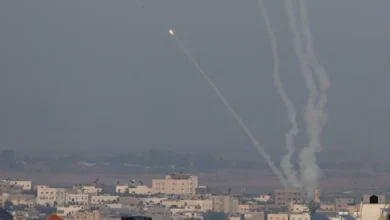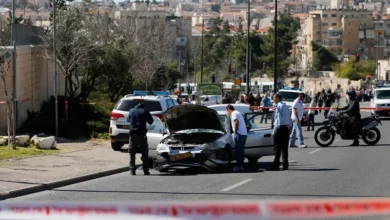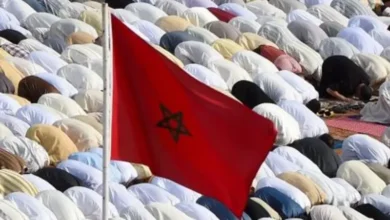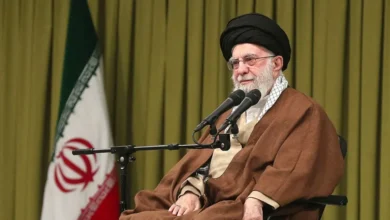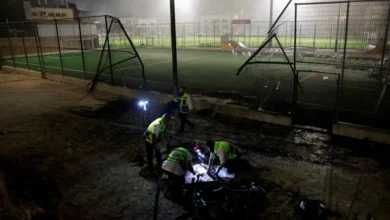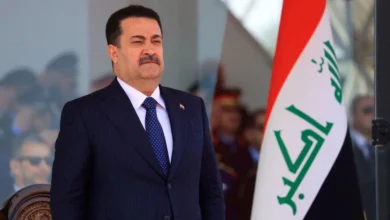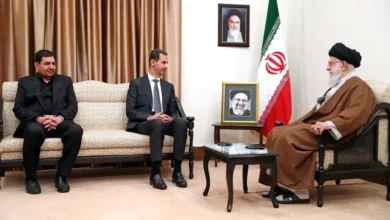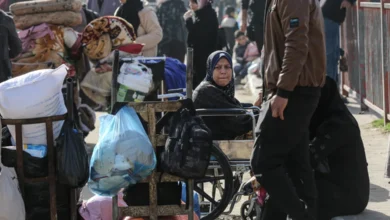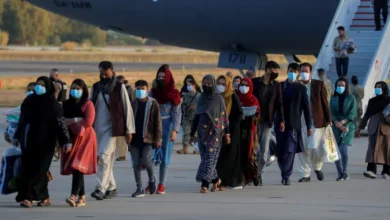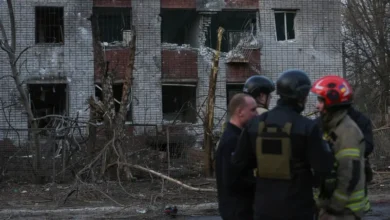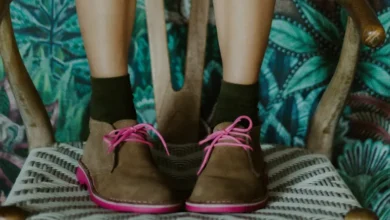Exclusive: Saudi astronauts mark new era for Saudi Arabia’s intergalactic ambitions
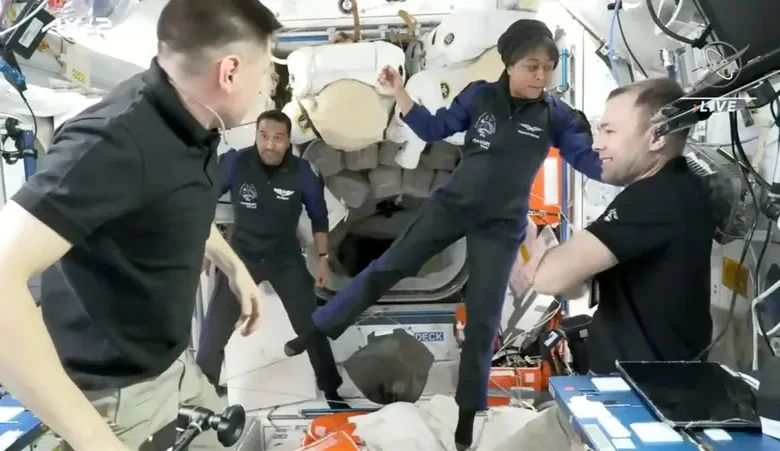
Saudi astronauts Rayyanah Barnawi and Ali al-Qarni, who ventured into space this week, are a “source of national pride”, the Saudi Space Commission said, adding that the eight-day mission marks the tipping point for a new era for the Kingdom’s intergalactic ambitions.
In an exclusive interview with Al Arabiya English, Dr. Haithem Altwaijri, an advisor to the Saudi Space Commission, also likened Barnawi to Valentina Vladimirovna Tereshkova – a Russian engineer and the first woman ever to fly in space on 16 June 1963 – saying: “Rayyanah…she is our Valentina of the Arab World.”
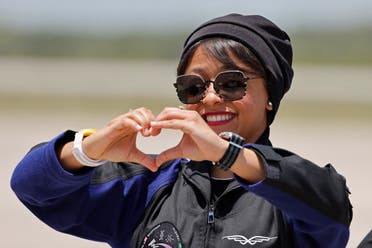
“If you look at history, in 1963 we had Valentina Tereshkova, the first female astronaut to space and she was an inspiration to all the females throughout the world. She demonstrated that females could do anything that a man could do,” the advisor said.
“Rayyanah is our Valentina for the Arab world – she will be able to inspire all females in all the Arab nations to be able to look at the stars and say ‘I can reach them’.”
Saudi Arabia makes history
Saudi Arabia made history on Monday after successfully sending two of its citizens to the International Space Station (ISS) from NASA’s Kennedy Space Center in Florida as part of the four-person crew Axiom-2 mission, marking the Kingdom’s first nationals to foray into space in almost four decades.
Barnawi, 33, and al-Qarni, 31, arrived at the ISS on Monday after a 17-hour journey and are in the midst of an eight-day stay on the orbiting outpost taking part in 14 science, research and educational experiments.
Describing the moment of the successful launch at 1:37 a.m. GST, Altwaijri said: “Obviously, there was a lot of excitement…it is something of national pride to have the first Saudi – and Arab – female to go to ISS. It is also a historic moment where we have two astronauts going up at the same time to be able to do a scientific mission.”
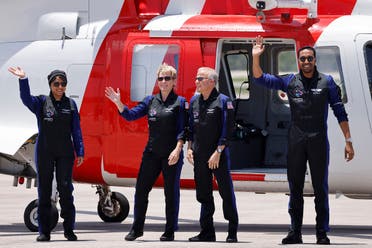
While 263 people from 20 countries had previously visited the ISS, Saudi Arabia became the sixth nation to have two national astronauts simultaneously working aboard the orbiting laboratory.
Altwaijri said the excitement was “felt throughout the Kingdom,” with the Saudi Space Commission staging several viewing screens across Jeddah, Riyadh and Damman, giving citizens and expatriates a chance to watch the countdown towards the history-book-making launch.
“We had viewing auditoriums… they were packed with children – even though it was a school night. Children were there to see that Saudi Arabia really does go to space.”
He said the national pride that rippled across the country was also felt as al-Qarni and Barnawi’s first words addressing the world from ISS were in Arabic.
“It was exciting, and it touched the hearts of a lot of people throughout the Arab world,” he said.
How the Saudi astronauts were selected
When it came to choosing the astronauts, Altwaijri said there was a rigorous selection process to choosing both al-Qarni – an Air Force captain and fighter pilot – and Barnawi – who has a Master of Biomedical Sciences and is also a research laboratory technician with nine years of experience in breast cancer and cancer stem-cell research.
“It was an extensive selection process,” he said. “There was a number of candidates that we were looking at.”
But al-Qarni and Barnawi stood out from the crowd, he said, for not only the Saudi Space Mission, but also with NASA and Axiom Space, which led the all-private astronaut mission to ISS.
When it came to Barnawi, he said: “She stood out as a scientist and a researcher that was extremely capable.”
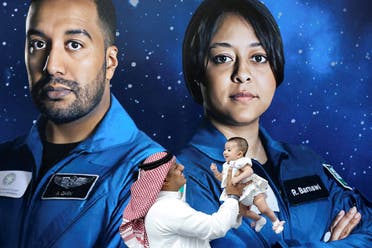
The ISS mission, said Altwaijri, marks a historic moment for the Saudi Space Commission – and the wider Kingdom.
Launched in December 2018 by royal decree, the Saudi Space Commission, or SSC, aims to accelerate economic diversification, enhance research and development, and raise private sector participation in the global space industry.
Since its inception, the SSC has struck deals with the European Space Agency, the UK, France, and Hungary to further cooperation, and inked deals with aerospace giant Airbus, joined the International Astronautical Federation, and launched scholarship programs to allow Saudi students to attend the world’s best universities offering courses in space sciences and aerospace engineering.
“This (ISS) mission is just the starting point with the (space) ambitions Saudi Arabia has,” said Altwaijri. “We are not looking at just a one-time mission, we’re looking at a very long-term program where hopefully, within the future, you’ll see Saudi having missions that not only are to ISS but also to lunar and hopefully beyond.”
With Wednesday marking their third day on board ISS, Barnawi and al-Qarni have a busy schedule during their stay as they conduct ground-breaking experiments.
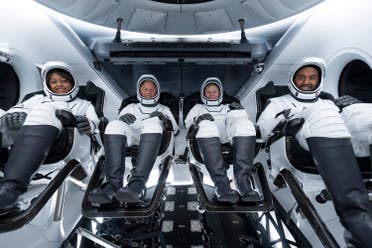
Experiments in outer space
Aximon confirmed all four astronauts “are doing well and getting to work” on their full mission comprised of science, outreach, and commercial activities on health sciences and weather technology, so they could be tested in microgravity conditions.
The array of experiments includes cloud seeding – which will be examined for the first time in space under microgravity conditions to help develop weather control technology to generate artificial rain in future human settlements on the Moon and Mars.
Astronauts will also use space to evaluate the steps used in terrestrial manufacturing to reprogram skin cells (fibroblasts) into stem cells capable of producing various tissue types (heart, brain, and blood), which could support regenerative medicine uses on Earth.
In another experiment, the scientists will examine stem cell models that can help predict and prevent cancer. Meanwhile, bioengineered liver and kidney tissue constructs will also be examined in space to assess the impact of microgravity on the vascularization of thick tissues.
If successful, this platform technology and approach could lead to the in-space bioengineering of ‘building blocks’ of tissue that can serve as a bridge to transplants in patients awaiting a limited supply of donor organs.
Data collected in flight will impact understanding of human physiology on Earth and in orbit, as well as establish the utility of novel technologies that could be used for future human spaceflight pursuits and improving life on Earth.
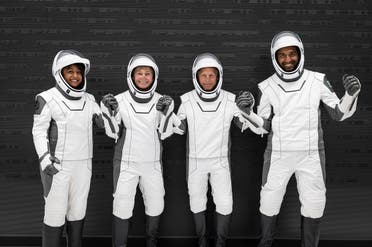
Inspiring young Arabs
But part of the mission will also be to inspire young Arabs to study science, tech, maths and engineering (STEM) subjects.
Altwaijri said: “They are doing a number of scientific experiments on board ISS… three of them have educational outreach.”
This will see the astronauts doing medical, biomedical and physical experiments that can be communicated with about 12,000 students in 47 locations across the Kingdoms. The information gleaned from visual experiments will see students recreate the experiments on the ground.
“All of these experiments do pique my interest – they are all very exciting and we are looking forward to the results,” said Altwaijri.
